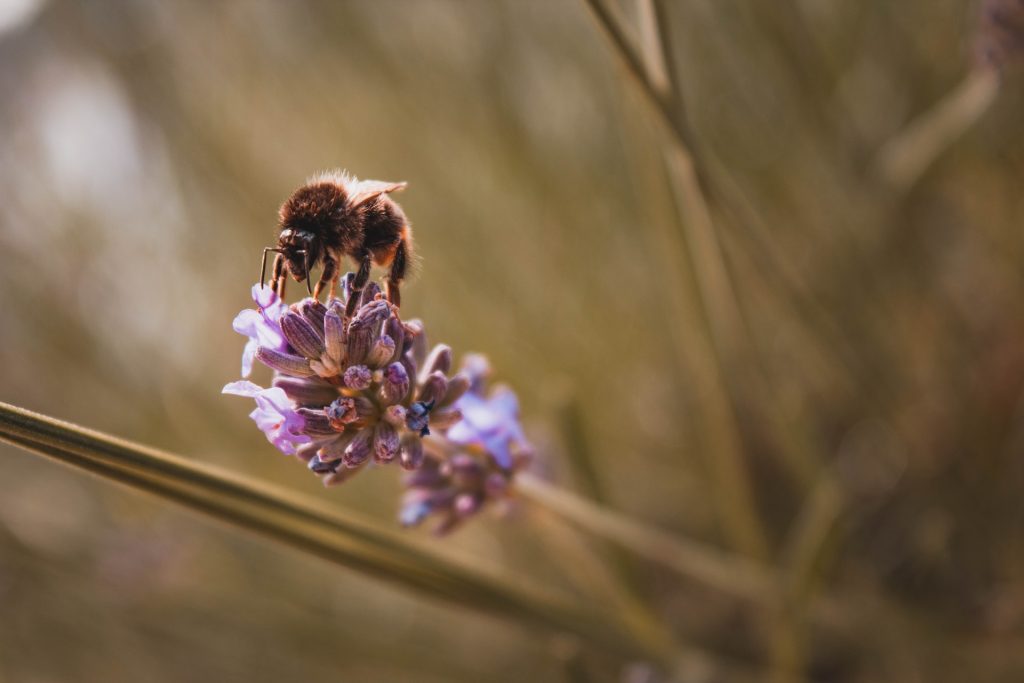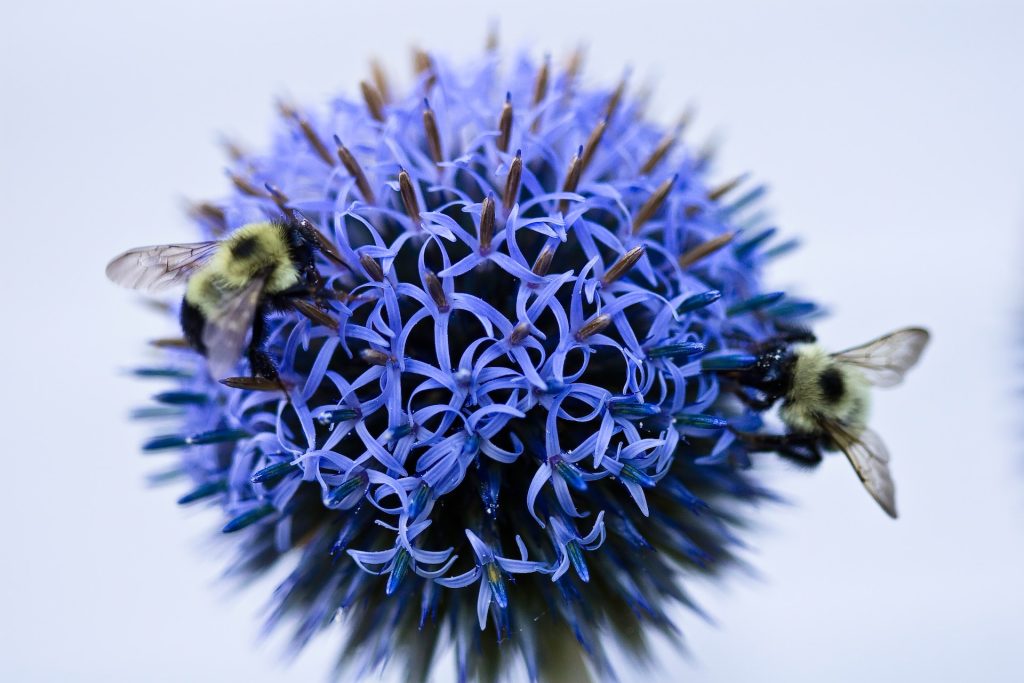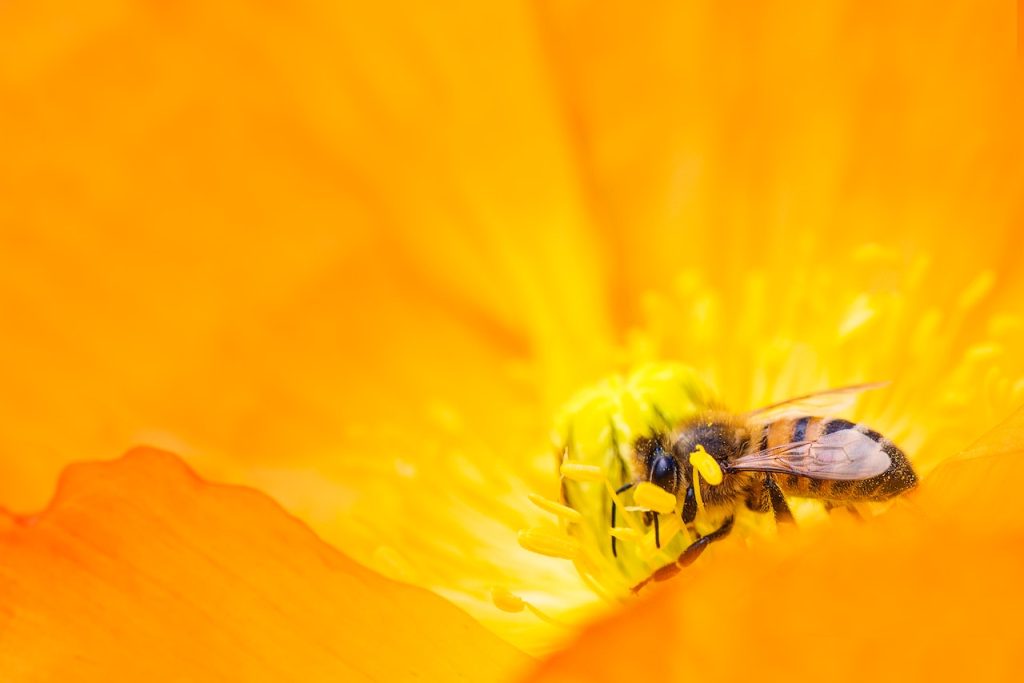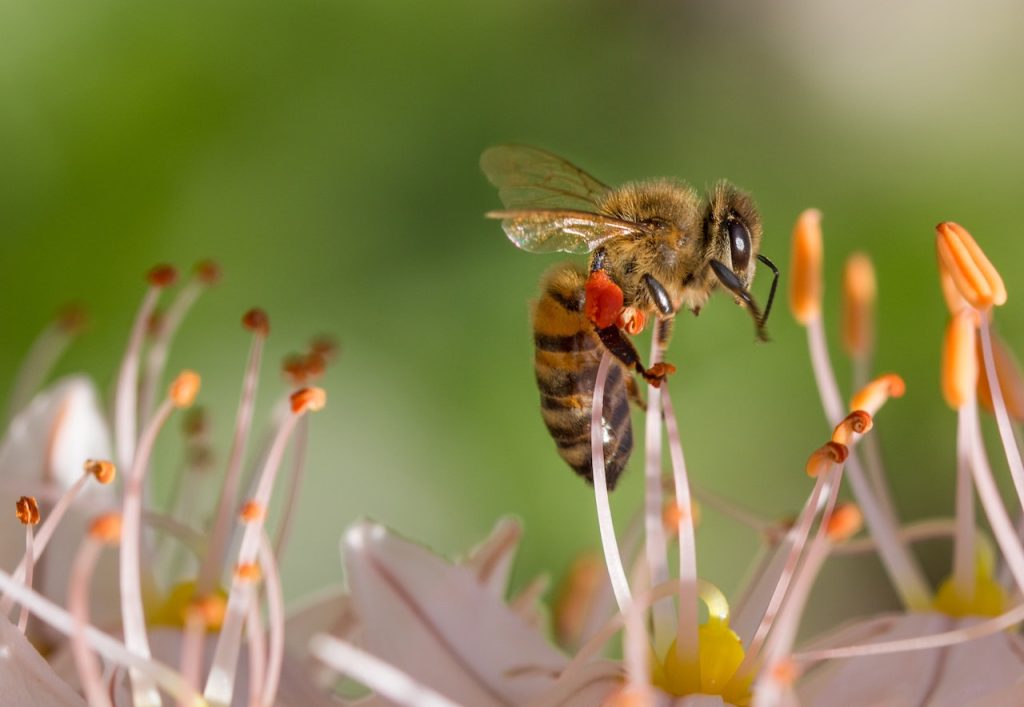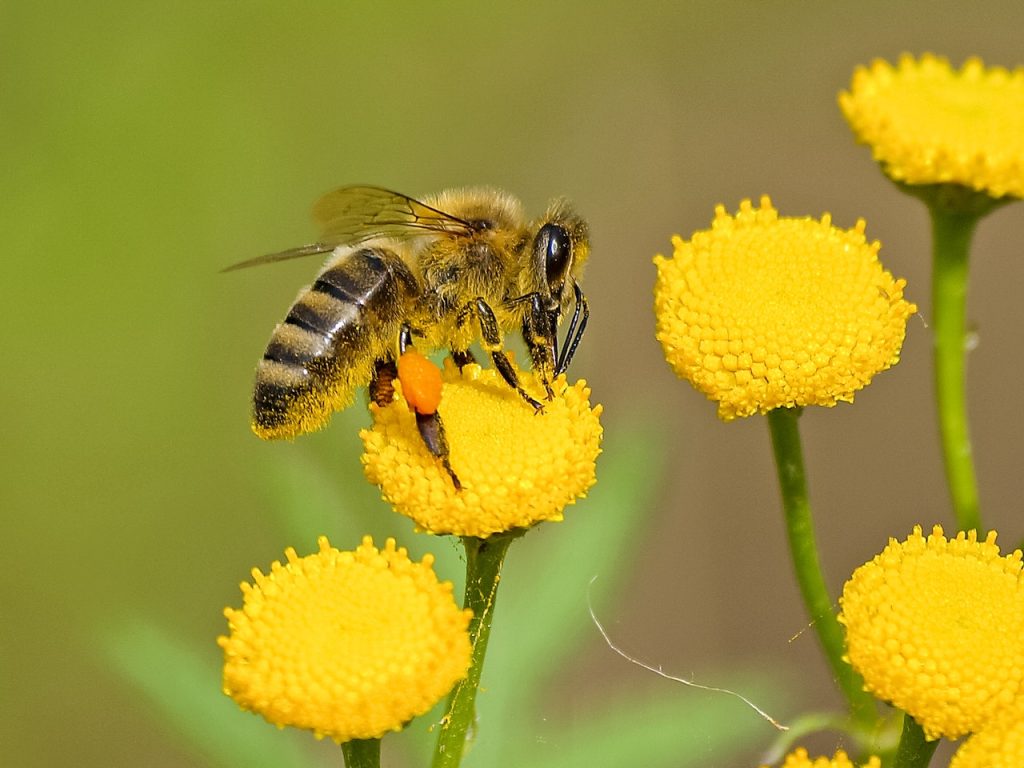Part 1: Bees in Ancient Cultures and Mythology
Throughout human history, bees have played a significant role in various cultures, religions, and mythologies. From the earliest cave paintings to the modern fascination with these incredible creatures, bees have captivated our imagination and shaped our relationship with nature. In this article, we will explore the multifaceted role of bees in human history, tracing their influence from ancient times to the present day.
- Bees in Prehistoric and Ancient Civilizations: Bees have been intertwined with human existence since prehistoric times. The earliest evidence of human fascination with bees can be found in ancient cave paintings. In Spain and Africa, cave art dating back thousands of years depicts humans collecting honey from wild beehives. These early depictions reveal the early recognition of the value of honey and the risks taken to obtain it.
- Honey and its Sacred Symbolism: Honey held a special place in the mythology and religious practices of many ancient civilizations. In ancient Egypt, honey was associated with the sun god Ra and played a role in religious rituals and offerings. The Greeks and Romans believed that honey was a gift from the gods and associated it with fertility, healing, and immortality. Honey was also considered a divine food in Hindu and Buddhist traditions.
- Beekeeping in Ancient Egypt and Mesopotamia: Ancient civilizations such as Egypt and Mesopotamia developed early beekeeping practices. In ancient Egypt, beekeeping was a highly organized activity, with beekeepers managing beehives and extracting honey for both consumption and trade. Beekeeping in Mesopotamia was also well-established, with clay tablets from the region providing insights into beekeeping techniques and the importance of bees in agriculture.
- Bees in Greek Mythology: Greek mythology abounds with references to bees and their significance. Bees were associated with the goddess Artemis, who was often depicted with bees around her. The nymphs known as the Melissae were believed to have nurtured Zeus with honey when he was an infant. Bees also featured prominently in the story of Demeter and Persephone, symbolizing fertility and regeneration.
- Bees in Roman Culture and Imperial Symbolism: Bees held great significance in Roman culture, symbolizing productivity, industriousness, and loyalty. The Romans considered bees a model of civic duty and ordered society. Bees were depicted on coins, artwork, and architecture, reflecting their association with the Roman Empire’s prosperity and disciplined workforce.
Part 2: Medieval Beekeeping and Honey Trade
In Part 2 of our article on the role of bees in human history, we delve into the medieval period, a time when beekeeping techniques advanced, and honey became a valuable commodity. We explore the development of medieval beekeeping practices, the rise of honey as a traded commodity, and its economic and cultural significance.
- Medieval Beekeeping Techniques and Innovations: During the Middle Ages, beekeeping techniques evolved, and knowledge was shared across Europe. The use of woven skeps, hollowed logs, and straw hives became popular, providing shelters for bees and facilitating honey extraction. Monasteries played a crucial role in beekeeping, as monks developed advanced techniques and maintained apiaries for both honey production and wax for candles.
- Honey as a Valuable Commodity: Honey became a sought-after commodity during the medieval period, valued for its sweetness, long shelf life, and various uses. It was not only consumed as a food but also used in medicinal remedies and as a sweetener for mead, an alcoholic beverage popular in medieval times. The high demand for honey led to its trade across Europe and the establishment of honey markets and fairs.
- Beekeeping Guilds and Regulations: As beekeeping grew in importance, guilds and associations dedicated to beekeeping emerged. Beekeeping guilds set standards, regulated practices, and enforced rules to maintain the quality of honey and prevent fraud. These guilds also fostered knowledge exchange among beekeepers and helped advance beekeeping techniques.
- Honey in Medieval Culture and Cuisine: Honey played a prominent role in medieval culture and cuisine. It was used to sweeten dishes, make confections, and create delicious mead. Honey also held symbolic value in religious ceremonies, festivals, and celebrations. Additionally, medieval literature and poetry often featured references to honey, highlighting its allure and cultural significance.
- Bees in Art and Symbolism: During the medieval period, bees were frequently depicted in art, architecture, and heraldry. Bees symbolized virtues such as industry, order, and loyalty. They were often associated with religious imagery, appearing in illuminated manuscripts, stained glass windows, and church decorations.
Part 3: The Scientific Exploration of Bees and Modern Beekeeping Practices
In Part 3 of our article on the role of bees in human history, we delve into the scientific exploration of bees and the development of modern beekeeping practices. We explore the contributions of notable scientists, the emergence of beekeeping as a profession, and the significance of bees in modern agriculture.
- The Scientific Study of Bees: In the 18th and 19th centuries, scientific interest in bees grew, leading to significant advancements in our understanding of their biology and behavior. Notable scientists such as Jan Swammerdam, François Huber, and Karl von Frisch conducted groundbreaking research on bees, unraveling their complex communication systems, navigation abilities, and social structures.
- The Birth of Modern Beekeeping: The 19th century witnessed the emergence of modern beekeeping as a distinct profession. Innovations such as the movable frame hive, patented by Lorenzo Langstroth, revolutionized beekeeping practices by allowing for easier hive management and honey extraction. This innovation laid the foundation for modern beekeeping techniques still in use today.
- Honey Production and Agricultural Importance: Bees continue to play a vital role in modern agriculture through their pollination services. Commercial beekeeping operations provide pollination services to orchards, crop fields, and greenhouses, enhancing yields and ensuring the success of agricultural production. The economic value of bees’ pollination services is immense, contributing to the sustainability of global food systems.
- Threats to Bee Health and Conservation Efforts: Despite their importance, bees face numerous challenges that threaten their populations and overall health. Pesticide exposure, habitat loss, climate change, and diseases like Colony Collapse Disorder (CCD) have taken a toll on bee populations worldwide. As a result, conservation efforts have intensified, focusing on preserving bee habitats, reducing pesticide use, and promoting awareness of their importance.
- Beekeeping as a Hobby and Sustainable Practice: Beekeeping has experienced a resurgence as a hobby and a sustainable practice in recent years. Urban beekeeping initiatives have gained popularity, as individuals and communities recognize the ecological and educational benefits of maintaining be
Part 4: Beekeeping and Environmental Conservation
In Part 4 of our article on the role of bees in human history, we explore the connection between beekeeping and environmental conservation. Beekeeping practices, when carried out sustainably and with ecological considerations, can have positive impacts on biodiversity, habitat restoration, and ecosystem health.
- Beekeeping and Biodiversity: Beekeeping, when done responsibly, can contribute to the preservation of biodiversity. By providing suitable habitats and forage resources for bees, beekeepers support not only honeybee populations but also native bee species and other pollinators. This biodiversity conservation is essential for maintaining healthy ecosystems and the pollination services they provide.
- Habitat Restoration and Pollinator Corridors: Beekeepers can play a role in habitat restoration by creating pollinator-friendly landscapes and supporting the establishment of pollinator corridors. Pollinator corridors connect fragmented habitats, enabling the movement of bees and other pollinators between different areas, promoting gene flow, and enhancing overall population resilience.
- Organic and Sustainable Beekeeping: Practicing organic and sustainable beekeeping methods reduces the negative environmental impacts associated with conventional agricultural practices. Organic beekeeping avoids the use of synthetic pesticides, antibiotics, and artificial additives in hive management, promoting the health and well-being of bees while minimizing chemical residues in honey and beeswax.
- Supporting Native Bee Species: While honeybees receive much attention, native bee species also play critical roles in pollination and ecosystem functioning. Beekeepers can contribute to native bee conservation by creating suitable habitats, planting native flowering plants, and avoiding the introduction of non-native honeybee colonies that may outcompete or spread diseases to native bees.
- Educational Outreach and Awareness: Beekeepers can serve as ambassadors for environmental conservation by educating the public about the importance of bees and the need for their protection. Outreach activities, such as workshops, public demonstrations, and school programs, can help raise awareness about pollinator conservation, the benefits of organic beekeeping, and the role individuals can play in supporting bee populations.
Part 5: The Future of Beekeeping and Bee Conservation
In the final part of our article on the role of bees in human history, we explore the future of beekeeping and the importance of bee conservation in a changing world. As we face environmental challenges and the ongoing decline of bee populations, it is crucial to look ahead and consider innovative approaches and collective actions to ensure the survival and well-being of bees.
- Climate Change and Beekeeping: Climate change poses significant challenges to bees and beekeeping. Rising temperatures, altered rainfall patterns, and changes in plant phenology can impact bee foraging resources and disrupt the synchrony between bees and flowering plants. Beekeepers will need to adapt their practices, implement mitigation strategies, and support the development of resilient bee populations.
- Technological Advancements in Beekeeping: Emerging technologies offer new possibilities for beekeeping and bee conservation. Remote monitoring systems, precision hive management, and advanced genetic analysis can improve colony health assessments, disease detection, and breeding programs. These technological advancements may enhance beekeeping practices, increase productivity, and contribute to the conservation of bee populations.
- Collaboration and Policy Support: Addressing the challenges faced by bees and beekeepers requires collaboration among beekeepers, scientists, policymakers, and the public. Strengthening partnerships, fostering knowledge exchange, and advocating for policies that promote bee-friendly practices, habitat conservation, and reduced pesticide use are vital for ensuring a sustainable future for bees.
- Consumer Choices and Bee-Friendly Actions: Individuals can make a difference by supporting bee-friendly initiatives and making conscious choices. Purchasing organic and locally produced honey, planting bee-friendly flowers, reducing pesticide use in gardens, and supporting bee conservation organizations contribute to the overall well-being of bees and their habitats.
The role of bees in human history has been diverse and significant, shaping our cultural, economic, and environmental landscapes. From ancient cave paintings to modern beekeeping practices, bees have captivated our imagination and played essential roles in pollination, agriculture, and ecological balance. As we move forward, it is crucial to recognize the importance of bees, prioritize their conservation, and adopt sustainable beekeeping practices. By working together, we can ensure the survival and thriving of these remarkable creatures for future generations to enjoy and benefit from their invaluable services.

